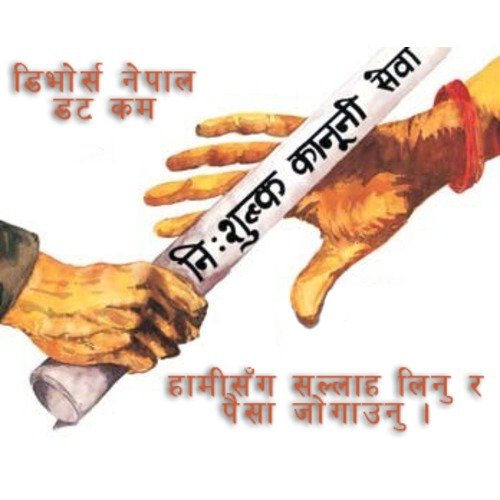Best Divorce & Separation Lawyers in Hetauda
Share your needs with us, get contacted by law firms.
Free. Takes 2 min.
Free Guide to Hiring a Family Lawyer
List of the best lawyers in Hetauda, Nepal
About Divorce & Separation Law in Hetauda, Nepal
The divorce law in Nepal, including Hetauda, is based on the principles of fault-based divorce and mutual consent. It allows for divorce if a spouse can prove the other party is at fault due to reasons such as adultery, abandonment, or abuse. As for divorce by mutual consent, both spouses agree to end the marriage according to terms decided between them. The concept of alimony or maintenance exists, along with the arrangement for child custody.
Why You May Need a Lawyer
Navigating the divorce process in Nepal can be challenging. A lawyer can help to clarify your rights, understand legal procedures, and present your case effectively in court. They can also assist in negotiating terms including division of property, maintenance and child custody arrangements. In case of contested divorce, where there are disagreements with your spouse or in situations where there are instances of domestic abuse, having a lawyer is critical. Legal assistance can ensure your rights are protected and can simplify a potentially complicated process.
Local Laws Overview
According to the Nepalese law, either spouse can file for divorce if they can prove the other is at fault, or if they have lived separately for three years and can prove irreconcilable differences. The court may order one spouse to pay maintenance to the other, considering factors like the financial status and earning capacity of both parties. The court also prioritizes the interests of the child in deciding custody, if minor children are involved. It takes into account factors like the child's age, health, and emotional ties with parents before making a verdict.
Frequently Asked Questions
1. Can I file for divorce without my spouse's consent in Hetauda, Nepal?
Yes, you can. According to the law, if you can prove your spouse is at fault for reasons such as adultery, cruelty, or abandonment, you can file for divorce.
2. How are assets divided in a divorce?
The court usually divides assets on the basis of each spouse's contribution to the accumulation of assets. A lawyer can provide more precise advice tailored to your circumstances.
3. How long does the divorce process take?
The duration of the process can vary depending on the complexity of the case, whether it is a contested or uncontested divorce, and court schedules. It can take several months to a year or more.
4. How is child custody decided?
The court decides based on the best interests of the child, considering factors like the child’s age, health, emotional ties with parents and parents' capacity to provide for the child.
5. Can I seek maintenance from my spouse?
Yes, in case of divorce, the court can order one spouse to pay maintenance to the other, depending on financial status and earning capacity of both parties.
Additional Resources
Nepal's Family Court and the Ministry of Law, Justice and Parliamentary Affairs can provide detailed information about divorce laws. Additionally, local legal clinics and law offices specializing in family law can provide assistance and resources.
Next Steps
If you need legal assistance for divorce or separation, the first step is to consult with a lawyer specializing in family law. They will be able to provide guidance and representation tailored to your specific situation. It's also recommended to familiarize yourself with your legal rights and obligations under the divorce laws in Hetauda, Nepal.
Lawzana helps you find the best lawyers and law firms in Hetauda through a curated and pre-screened list of qualified legal professionals. Our platform offers rankings and detailed profiles of attorneys and law firms, allowing you to compare based on practice areas, including Divorce & Separation, experience, and client feedback.
Each profile includes a description of the firm's areas of practice, client reviews, team members and partners, year of establishment, spoken languages, office locations, contact information, social media presence, and any published articles or resources. Most firms on our platform speak English and are experienced in both local and international legal matters.
Get a quote from top-rated law firms in Hetauda, Nepal — quickly, securely, and without unnecessary hassle.
Disclaimer:
The information provided on this page is for general informational purposes only and does not constitute legal advice. While we strive to ensure the accuracy and relevance of the content, legal information may change over time, and interpretations of the law can vary. You should always consult with a qualified legal professional for advice specific to your situation.
We disclaim all liability for actions taken or not taken based on the content of this page. If you believe any information is incorrect or outdated, please contact us, and we will review and update it where appropriate.








